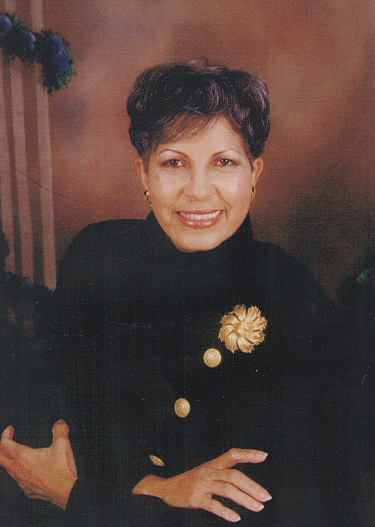Sherian Grace Cadoria
Class of 2003
- Brigadier General (Retired) United States Army

Anything is possible when you have faith in God and are willing to work hard.
Sherian Cadoria was born in 1940 in Marksville, Louisiana, a small town that is centrally located within the state and that is where her parents worked as tenant farm laborers. When she was three months old, her father was injured in an accident from which he never recovered and was hospitalized until his death. Cadoria's mother was undaunted by the responsibilities placed on her following her husband's accident. "She was the strongest, most courageous woman I have ever known," says Cadoria. "She worked all the time, but she never complained."
Shortly after her father was hospitalized, Cadoria's family was forced to move. Even though her mother had brought in all the crops that year, the owner wanted a man to do the work. The Cadorias loaded a wagon with their meager possessions and moved to Blue Town, where they lived in a two-room house that had no running water or electricity. The walls of the house had so many holes that Cadoria's mother wallpapered floor to ceiling with pages from the Sears Roebuck catalog to seal what the family called their "air-conditioned" house. They used one room for sleeping and the other, which had a wood stove, for cooking.
Looking back on those days, Cadoria knows that her family was the poorest of the poor, but her mother's strength and courage kept them from feeling desperate. "We were a very close, loving family," she says. "My mother was a strict disciplinarian, but she did it with a lot of love." As soon as she could walk, Cadoria was expected to join her mother, sister, and brother in the cotton fields. Her mother gave her a pillowcase for her cotton, which would take her an entire day to fill. By the time she was 10, however, Cadoria was able to pick and haul 250 pounds of cotton a day.
Throughout her school years, Cadoria and her sister cleaned houses, an adult job they were hired to do because they were known for their excellent work. Growing up in the segregated South, Cadoria learned to live in two worlds. In school, the nuns told her that God had given her a gift that she had to use. But outside the school walls, the reality of her environment told her she could never elevate herself beyond working in the fields and the homes of others. Still, she listened to her high school English teacher who told her that she could do anything and that she should consider college. Her mother echoed those sentiments. She enrolled in Southern University, a historically black college located in Baton Rouge.
During her junior year at Southern, Cadoria joined the WAC College Junior Training Program, which ensured the rank of corporal after an intensive four-week training session. During their senior year, participants could apply for a commission, but Southern's small enrollment allowed for only one participant in the program. When Cadoria was selected, it was the first of many honors to come.
In 1961, during her senior year, Cadoria applied for a commission and received it. After graduating with a degree in business education, she trained at Fort McClellan, Alabama. Her experience there was not only grueling, but also terrifying. For the first time in her life she encountered hostility from the Ku Klux Klan, which protested the integration of blacks in the military. Even after becoming a platoon officer, she was refused service at a hamburger stand across the street from the base.
Although Cadoria faced prejudice for her race as well as her gender, she attended to the jobs put before her and excelled at them. Nursing and administration were frequent career paths for women in the military who aspired to ranks, but Cadoria became the first woman to ascend through a traditionally male unit. She was the first woman to command the all-male Military Police Training Battalion at Fort McClellan.
Cadoria's career included 33 consecutive months in Vietnam. A devout Catholic, she took time between her responsibilities to work with the Dominican nuns in hospitals and leper colonies. The needs she saw affected her so deeply that she began counseling in preparation to become a nun. After nine years in the military, she felt it might be the right time to leave the Army and serve elsewhere. At the same time, she was notified of her selection to attend the Command and General Staff College, a first for a black woman.
In 1990, after 29 years of distinguished service, Cadoria retired from the Army with the rank of brigadier general. "Success is a shared journey," she says. "My mentors were always there for me, and I try to be a mentor to young people. To me, success is having the ability to serve others by sharing your talents, your time, your resources, and by always extending your hand to pull someone along so they, too, can journey forward."
Honored by her membership in the Horatio Alger Association, Cadoria says, "There is nothing greater than people helping people, especially our young people of America." When she addresses youthful audiences, Cadoria's advice is to be honest and trustworthy. "Your integrity must always be unquestionable," she says. "You can never buy yourself back once you have sold yourself out. My formula is to do what you are supposed to do, when you are supposed to do it, the way you are supposed to do it, to the best of your ability."
